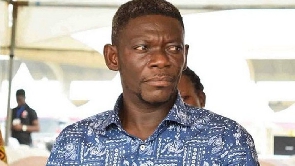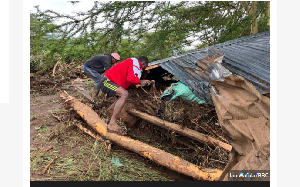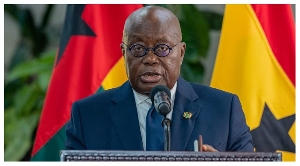Regional News of Tuesday, 15 April 2008
Source: GNA
Upper East Holds Workshop on New Educational Reforms
Tongo(UE), April 15, GNA- A two-day workshop aimed at sensitizing teachers on the new educational reforms to let them understand and appreciate their roles and responsibilities is underway in Tongo in the Talensi-Nab-dam District in the Upper East Region.
The workshop organized by the Ghana National Association of Teachers (GNAT) and sponsored by Action Aid International Ghana (AAIG) was also aimed at seeking inputs from participants and to issue a communiqu=E9 to remind Government of its responsibility at ensuring that adequate measures were put in place in order to get teachers motivated and educated on the new educational reforms to ensure that they were successfully implemented.
Mr. Linus Cofie Attey, Upper East Regional Secretary of GNAT stressed that for the successful implementation of the reforms, there was the need for teachers to be provided with the necessary and adequate information, the needed inputs and logistics and enough motivation.
This, he noted, would help equip teachers effectively to meet the challenges posed by the new educational reforms by ensuring that there were effectively and successfully implemented.He appealed to Government to fulfill its promise to assist teachers to pursuing Programmes of Distance Education so as to give practical meaning to the current reforms.
Mr. Cofie expressed concern about the undue delay of Government in approving the collective agreement as required by the Labour Act, 2003 Act 651 and called on Government to, as a matter of urgency expedite action on approving the collective agreement.
He explained that the document is to spell out the conditions of service of all teachers and to clear issues on the Scheme of service Mr. Cofie called for the 2008 salary negotiations between the Government and the Union to be completed and implemented as the economic situation was making it unbearable for teachers to meet their basic needs.
Mr. Alhassan Sulemana, a Senior Programme Officer of AAIG, explained that his outfit considered education as fundamental human rights, a core element of development and the rights that enable people to access and enjoy other rights. Consequently, it worked with excluded groups and stakeholders in education to challenge the commoditization of education and to democratize the learning process so that all children got free access to quality education within an equitable system and ensured that the Government fully assumed its obligations to provide quality basic education to all.










